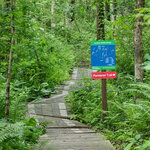Extension of DESE Mask Requirement
October 26, 2021
At the special meeting of the Board of Elementary and Secondary Education (Board) on August 24, 2021, the Board voted to declare “exigent circumstances” pursuant to the Student Learning Time (SLT) regulations, 603 CMR 27.08 (1), and authorized the Commissioner of Elementary and Secondary Education to require masks for public school students (age 5 and above) and staff in all grades through at least October 1, 2021. The mask requirement remains an important measure to keep students safe in school at this time,1 and on September 27, 2021, the Commissioner extended the mask requirement through at least November 1, 2021.
This school year, the Department of Elementary and Secondary Education (DESE) required all districts and schools to provide in-person learning to students. Since the start of the year, approximately 920,000 public school students have been learning in schools with minimal disruptions. In addition to masking, this progress has been possible thanks to school communities working together to participate in the state’s COVID-19 testing program, combined with high vaccination rates among eligible populations.
Over 2,200 schools have opted into DESE’s surveillance and symptomatic testing program to support the continuity of safe, in-person learning for our children. As part of this program, DESE has instituted a groundbreaking Test and Stay program for individuals identified as close contacts in school, in which they are able to remain in school provided they engage in daily testing for seven days. Across the state, this innovation has saved more than 48,000 days of student learning this school year.
Massachusetts is also a national leader in vaccination rates for adults and currently eligible children. The Commonwealth’s high vaccination rates and low transmission rates are other important factors supporting in-person learning. In addition, with the expected announcement of the vaccine becoming available for children ages 5-11 in the coming weeks, an extension of the mask requirement would allow time for the elementary school population to receive the vaccine.
Consistent with the authority provided by the Board, and after consulting with medical experts and state health officials, the Commissioner is extending the mask requirement through at least January 15, 2022. The Department will continue to work with medical experts and state health officials to evaluate the mask requirement beyond January 15. The Department, in collaboration with medical experts and state health officials, will also continue to review and consider additional metrics related to the state mask requirement based on our ongoing review of public health data. Currently, if a school building demonstrates a vaccination rate of 80 percent or more of all students and staff in the school through an attestation form submitted to DESE, then vaccinated individuals in that school would no longer be subject to the state mask requirement. Whether or not a school or district avails themselves of the 80 percent vaccination off ramp is a local decision to be made by school and district leaders in consultation with local health officials. In alignment with statewide guidance, unvaccinated students and staff would be required to continue wearing masks. Additional information about the Vaccination Rate Threshold is available here.
- The mask requirement is an exercise of the Board’s responsibility to ensure students attend classes in a safe environment. G.L. c. 69, § 1B. It is also an exercise of the Board’s authority to set policies relative to children’s education, including ensuring that students receive the required amount of structured learning time through inperson instruction. G.L. c. 69, §§ 1, 1B, 1G; G.L. c. 71, §§ 1 & 4A; 603 CMR 27.08
The following mask requirements will remain in effect: • Public school students (age 5 and above) and staff in all grades are required to wear masks indoors in schools, except as noted below. Masks are not required when outdoors. All visitors are also expected to wear a mask in school buildings. • Masks should cover an individual’s nose and mouth. For more information about appropriate mask use, please see: https://www.cdc.gov/coronavirus/2019-ncov/downloads/cloth-facecovering.pdf. • It is strongly recommended that students younger than age 5 also wear a mask in school. • Students and staff who cannot wear a mask for medical reasons and students who cannot wear a mask for behavioral reasons are exempted from the requirement. Face shields may be an option for students with medical or behavioral needs who are unable to wear masks or face coverings. Transparent masks may be the best option for both teachers and students in classes for deaf and hard of hearing students. • The mask requirement applies when students and staff are indoors at school, except when eating or drinking or during mask breaks. • Mask breaks may occur throughout the day. If feasible, breaks should occur when the windows are open or students are outdoors. As a reminder, meals and outdoor recess provide built-in mask breaks for students and staff. • Masks may also be removed indoors when necessary to participate in elective classes, such as the use of wind instruments in band. When traditional masks cannot be worn, districts should consider additional mitigations, such as the use of instrument masks (masks with a slit or hole cut for the mouthpiece) or bell covers, along with physical distancing or outdoor classes as feasible. • Masks are required for any sports-related activity for student-athletes and coaches when indoors, in alignment with guidance provided by the Massachusetts Interscholastic Athletic Association (MIAA). • Masks should be provided by the student/family, but disposable masks should be made available by the school for students who need them. • By federal public health order, all students and staff are required to wear a mask on school buses. • Whether and when a student should be disciplined for failure to wear a mask is a local decision, guided by the district’s student discipline policy and the particular facts. Districts should consult with their legal counsel to address these matters. Districts should provide written notice to students and families about expectations and potential consequences and are encouraged to use a progressive discipline approach. The mask requirement includes an exemption for students who cannot wear a mask due to medical conditions or behavioral needs. Further, some students with disabilities may need additional supports to wear masks and may need to be accommodated. Districts are encouraged to consider and implement alternatives before resorting to disciplinary exclusion. Keeping students connected with school is especially important this year, as students return to school after a challenging school year. - This requirement applies to all public schools, including charter schools, vocational technical schools, and educational collaboratives. It also applies to approved private special education schools.

















Comments
No comments on this item Please log in to comment by clicking here